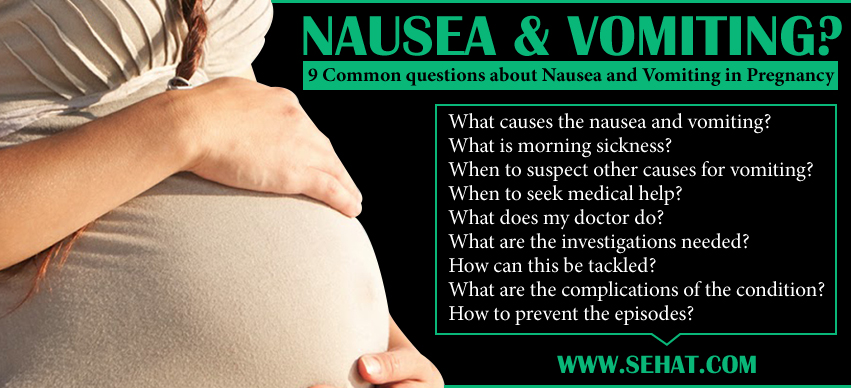Miscarriage In Early Pregnany- Signs, Causes, And Tips To Prevent
6 Min Read


Nausea and vomiting is a very common problem experienced by almost 80% of the pregnant women, especially in the first 3 months of pregnancy.
Out of them, nearly 35% of women face severe symptoms that limit their daily activities.
Frequent episodes of excessive nausea and vomiting in pregnancy are termed as hyper emesis gravidarum , which is seen in 2 to 5% of all pregnancies.It is serious enough to cause severe dehydration, electrolyte imbalances, weight loss and even abortions.
In early pregnancy the increase in Beta Hcg, a pregnancy hormone,leads to excessive vomiting. The levels come down after 12 weeks due to placental formation and hence many women get better after the 3 rd month of amenorrhea.Increased estrogen hormone during pregnancy can also be a cause.
You are at risk for nausea and excessive vomiting in your pregnancy if
Severe nausea on arising in the morning or anytime during the day.Generally begins around 5 th week of pregnancy and lasts upto 12 weeks.
Mild morning sickness- Nausea lasts for one hour a day and vomiting and retching only twice a day.
Severe morning sickness- symptoms last more than 6 hours and 5 or more episodes of vomiting and retching.
Hyperemesis can also lead to weight loss,ketonuria, electrolyte disturbances, hypokalemia and dehydration.
In case of vomiting that began before 5 weeks or lasting more than 12 weeks of a singleton pregnancy, see the doctor to rule out the below causes.
Gastritis, appendicitis,pancreatitis, kidney stones,drug intolerance, migraine, hepatitis, anxiety,etc.
When morning sickness tends to develop into hyperemesis gravidarum.
See the doctor if you develop severe vomiting, retching lasting for 6 hours or more, excessive thirst, dry tongue,giddiness,unable to take oral fluids warrants an immediate evaluation.
The doctor will examine you from head to toe. Your pulse rate, blood pressure, Cardiac,Respiratory system and the abdomen would be examined.
Complete blood count, urine routine and culture and sensitivity, Urine ketone bodies, Hepatitis A,B,C , Liver function tests and serum electrolytes.
An ultrasound may be needed to assess the fetal well being in severe cases.
The severity of the disease defines the treatment options.
In cases of mild episodes, non pharmacological methods like rest, plenty of water and fluids, avoiding food items or odor, which triggers nausea,for ex; fumes, spirit, smoke,perfumes, etc.
Dietary modifications like small frequent meals, bland diet and high protein diet can help. Kindly avoid spicy and oily food.
Herbal supplements like ginger root, ginger and mint can help.
Acupressure with acupressure P6 can be helpful .Consult a specialist for help.
Vitamin supplements like pyridoxine or vitamin B6 orally can help.
You will need Intra Venous fluids round the clock with multivitamin supplementations intermittently. Antacid and anti emetic injections may also be needed.
Persistent vomiting may result in acute dehydration, thiamine deficiency leading to mental confusion and imbalance in gait called Wernicke’s Encephalopathy.
It can lead to other complications like LowBirthWeight, Premature baby,Intra Uterine GrowthRestriction, etc.
Use of multivitamin supplements at the time of conception can help.
Avoid stress and prevent dehydration. Drink 3 to 4 litres of water a day. Watch your diet and sleep for 8 hours a day.
A good doctor and a good patient can together tackle the problem of morning sickness and have a successful outcome of pregnancy.
Sehat provides list of best Gynecologists in Hyderabad from which you can research and choose the right doctor for your condition.